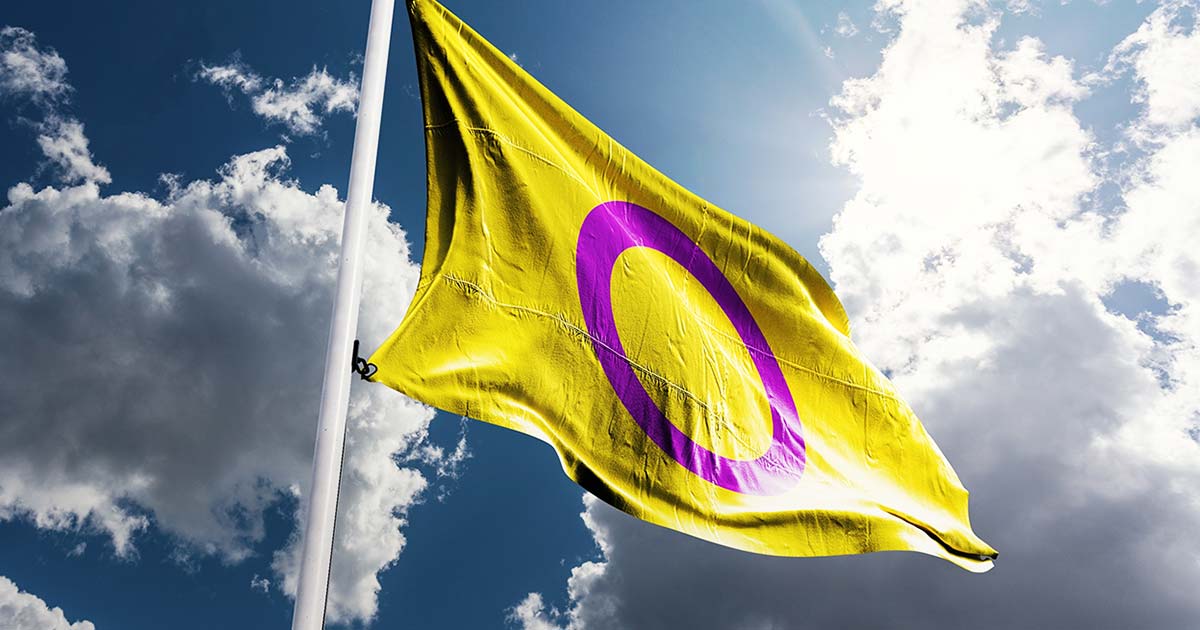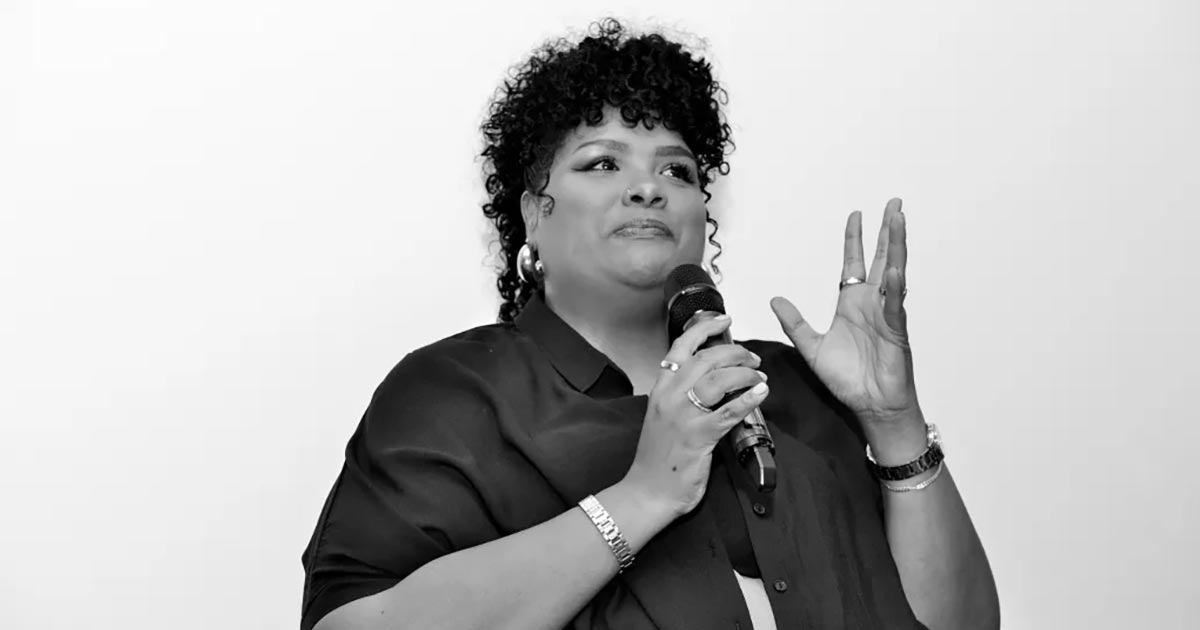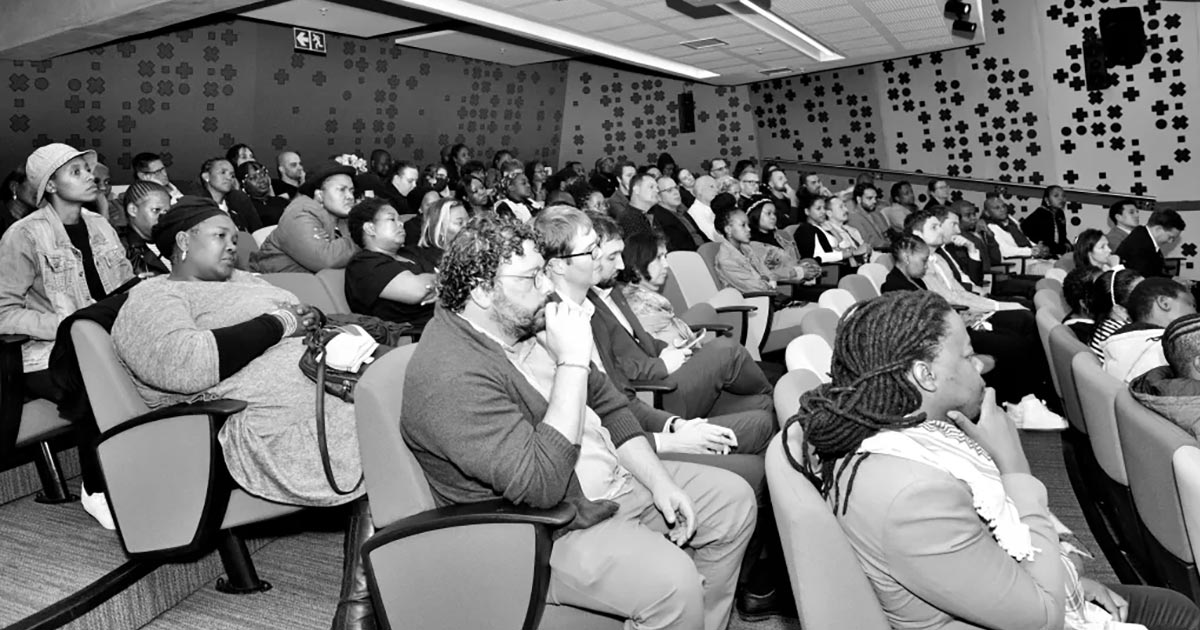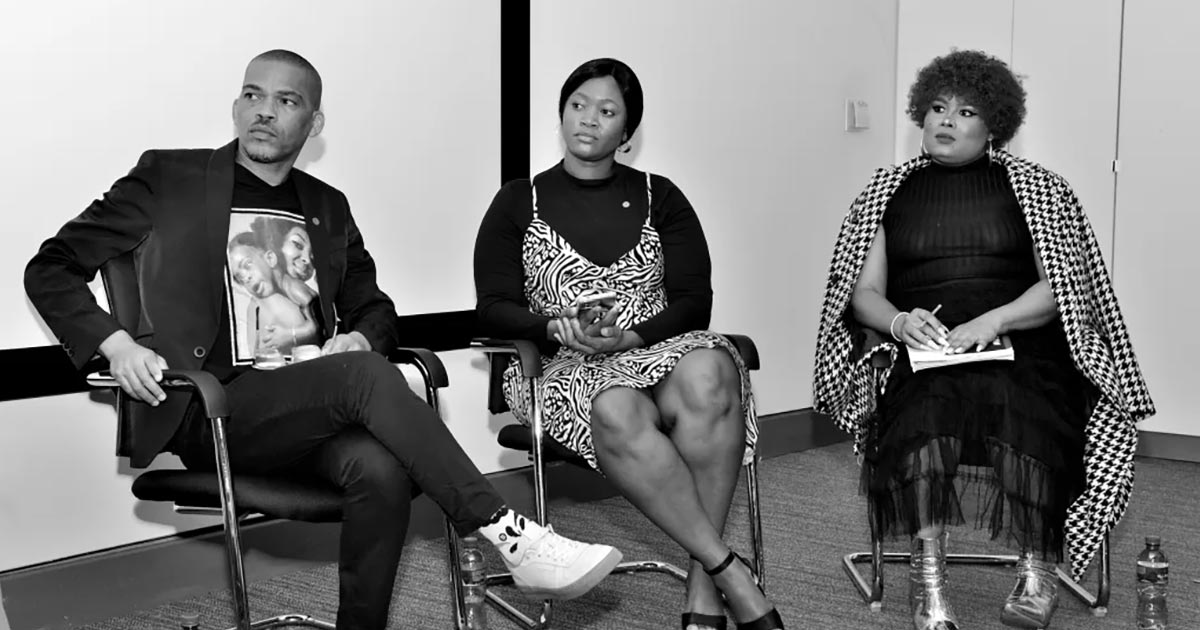Op-Ed: IDAHOBIT 2024 – The Power of ‘Artivism’ to Foster Change

On Thursday 4 April this year, the United Nations made a historic move to protect the human rights of intersex persons, as its Human Rights Council adopted its first-ever resolution specifically addressing discrimination, violence, and harmful practices against persons with innate variations in sex characteristics.
The resolution – brought by Finland, South Africa, Chile, and Australia – encourages States to “work to realise the enjoyment of the highest attainable standard of physical and mental health” for intersex people.
The document adopted by the Council expressed “grave concern” about violence and harmful practices facing persons with innate variations in sex characteristics – including medically unnecessary or deferrable interventions concerning sex characteristics. Across the African continent, transgender persons, too, are subjected to violence and harmful practices.

Crystal Hendricks, the Sex Characteristics Programme Officer at ILGA World and Intersex South Africa Management Committee Member, participated in a post-film screening panel discussion centred around IDAHOBIT, ‘artivism’ and the need to protect the rights of gender and sexual minorities. [Photo: Shizeeda Osman]
Both medically and culturally, the narrative of intersex and transgender persons has often been decided for them, denying them agency and autonomy over their own identities, lives and experiences.
There is, however, a shift taking place.
Intersex and transgender people are telling their own stories. And they are being heard. We look to the life story of Sally Gross, a pioneer in the intersex rights movement who, through the telling and retelling of her multifaceted lived experience, has, even after her passing, brought intersex issues into South African policy. The growth of intersex and transgender activism globally is fueled by these authentic narratives, which highlight the resilience and humanity of disenfranchised individuals and groups who defy societal and gender norms and expectations.
These stories – with their vulnerabilities, joys, and pain – hold the power to soften hearts and change rigged minds, shape public discourse, influence policy decisions, and, ultimately, foster acceptance. Film and narrative storytelling serve as powerful advocacy tools, providing platforms for connection, understanding, and introspection. By presenting narratives that challenge conventional constructs of gender and identity, we can chip away at entrenched biases and create space for the recognition and respect of all gender identities and bodies.
The theme of this year’s International Day Against Homophobia, Biphobia, Intersex-phobia and Transphobia (IDAHOBIT) – which is celebrated annually on 17 May – is ‘No one left behind: Equality, Freedom, and Justice for All’. The theme underscores the importance of inclusive advocacy. We live in a time when the anti-rights movement is making concerning inroads – particularly across Africa, where religious-based queerphobia is on the rise. There is, therefore, great responsibility on LGBTIQA+ persons, human rights activists, allies and donors to ensure the amplification of intersex and transgender persons’ voices.
Through film, we have the opportunity to shed light on the lived experiences of intersex, transgender, and gender-diverse communities. These narratives celebrate resilience, challenge stereotypes, and confront systemic discrimination and violence.
On the 14th of May 2024, Beyond the Margins, in collaboration with fellow media advocacy organisation, Iranti, – and in partnership with the Delegation of the European Union, the Embassy of Sweden and the Delegation of Flanders – held a thought-provoking film screening event at the University of Pretoria’s Javett Art Centre.

The event was attended by a wide range of people, including grassroots activists, parents of transgender and intersex children, government officials, embassy representatives from across the globe and queer asylum seekers. [Photo: Shizeeda Osman]
Under the theme, Victories, Challenges, and the Role of ‘Artivism’, the aim of the event was not only to celebrate the historic United Nations resolution, but also to highlight the ongoing imperative for creative grassroots efforts in combating discrimination and violence.
The themes explored throughout the films and post-screening panel discussion encompassed a wide array of social, cultural, legal and health-related issues: From the profound impacts of social isolation, shame, and fear on mental health and well-being, to the challenges faced by transgender and intersex persons in accessing essential healthcare and other basic services, including hormone replacement therapy. Furthermore, the intersectionality of socio-economic status, race, levels of education, unemployment, age and gender identity was examined, highlighting the unique struggles faced by both older and younger transgender people.
The role of religion, particularly within the context of familial and community acceptance, was also scrutinized. While some families and religious spaces offer solace and acceptance, others perpetuate discrimination and rejection, exacerbating mental health challenges and increasing the prevalence of survival sex work and HIV/AIDS. Despite South Africa’s progressive Constitution, questions were raised about the country’s efficacy in protecting intersex, transgender and gender-diverse asylum seekers and forced migrants, prompting reflection on the need to continue holding our government to account.
Central to the discussions – which, at times, presented difficult moments – was the fundamental right to bodily autonomy and informed decision-making. The necessity of transparent and ethical medical practices, alongside comprehensive counselling and support services, emerged as critical components in ensuring the well-being and autonomy of intersex children. Education and awareness-raising through film were also emphasised as indispensable tools in promoting societal understanding and acceptance.

Beyond the Margins founding director, Carl Collison, who put together three of the films screened at the event, was joined on the panel by Naledi Mpanza, Project Officer and Doctoral Candidate at the Centre for Human Rights’ SOGIESC Unit at the University of Pretoria (centre), and transgender rights activist and Beyond the Margins Board Secretary, Khanyisile Phillips (right), who moderated the discussions. [Photo: Shizeeda Osman]
The message was clear: Let us harness the power of ‘Artivism’ to build a more inclusive and equitable society. By centering the narratives of gender and sexual minorities, we challenge existing biases and pave the way for greater acceptance and understanding. This IDAHOBIT, let us recommit ourselves to the fight for equality, freedom, and justice for all.
Khanyisile Phillips is a transgender rights activist and Board Secretary of Beyond the Margins. Cameron Smith is the former Acting Intersex Rights Officer at Iranti. This article was first published by Beyond the Margins.
Leave a Reply